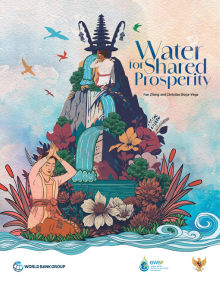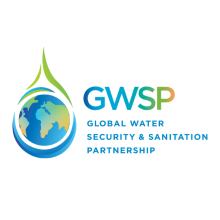Water security is the foundation of shared prosperity on a livable planet. Clean water is essential for drinking and food production, which are the basis for a healthy, productive life. Water is a key input for economic production and growth, particularly in the agricultural sector. Water is also vital for healthy ecosystems, which provide natural resources and services that support the livelihoods of billions of people.
Investment in water security supports job creation, livelihoods, and economic growth. Water plays a pivotal role in shaping a country’s wealth and prosperity. Ensuring reliable water supply can boost productivity and employment in water-intensive sectors, such as agriculture, energy, transportation, and manufacturing. Developing countries disproportionately rely on water-intensive sectors for employment: 55 percent of employment in low-income countries depends on water-intensive sectors compared to less than 20 percent in high-income countries. Water stress and climate change have the potential to slow down entire economic and trade systems.
The poor are the most exposed to water-related risks and the least able to adapt. They are more likely to depend on rainfed agriculture for livelihoods, spend a higher share of their income on food, and have limited capacity to recover from shocks such as floods and droughts. The cumulative and interconnected impact of water shocks on the income, education, and health of the poor can keep them in a cycle of poverty. For example, school absenteeism caused by extreme flooding between the years 2000 and 2022 will result in a lifetime earnings loss of $565 billion for affected school children at the global level, with those in low-income countries being particularly affected.
Realizing the benefits of water requires sustainable management and development of water resources, along with equitable and inclusive delivery of water services. Three interventions along the value chain of water supply, from source to distribution, can significantly improve water security, while reducing poverty and increasing shared prosperity: 1) enhancing resilience to extreme hydro-climatic risks for the poorest; 2) improving water resources development, management, and allocation; 3) and improving equitable and inclusive service delivery.






